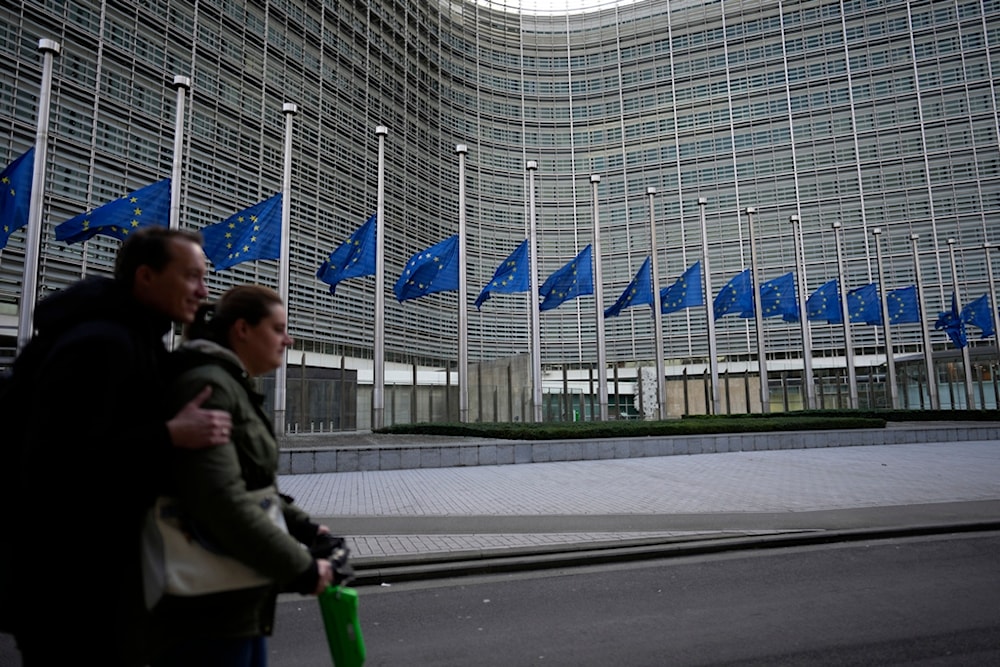Europe's global reputation damaged by stance on Gaza: Politico
Europe's diminishing relevance and significant loss of credibility in the Middle East poses a number of serious problems for the bloc.
-

Two people ride on a scooter as EU flags flap in the wind at half staff, in remembrance of former European Commission President Jacques Delors, in front of EU headquarters in Brussels, Dec. 28, 2023. (AP)
A report by Politico on Friday detailed that Europe's reputation among countries of the Global South, which had already been damaged by its double standards regarding the War in Ukraine, had become even more damaged following the outbreak of the war on Gaza.
The initial complacency of the West during the War in Ukraine quickly dissipated as the global majority, including over 140 countries at the UN General Assembly, condemned Russia's actions in Ukraine.
The illusion of a united front crumbled as some major countries, notably China and India, refrained from criticizing Russia, revealing a more complex global landscape, the report states.
Europe recognized the need to expand its diplomatic outreach, better explain its views, and listen to the perspectives of other nations, the report says.
Read more: Israeli media: EU fears hamper US Red Sea coalition
Despite Europe's attempts at repackaging and diplomatic adjustments, challenges persisted in dealing with countries that remained neutral in the conflict.
Questions arose about addressing historical colonial and neocolonial issues and avoiding transactional relationships without abandoning values.
However, the turning point came with Europe's divergent approaches to cease-fires in Ukraine and Gaza, exposing Western double standards and causing divisions.
The UN resolutions on Gaza highlighted the stark differences in Europe's stance, with Western countries initially voting against a humanitarian truce and later abstaining or voting against a stronger cease-fire resolution.
This divergence, along with internal disagreements among European nations, has marginalized Europe's role in the Middle East.
Read more: European countries protest: 'Stop Israeli crimes on Gaza'
Europe's diminishing relevance and significant loss of credibility in the Middle East pose more than just a regional problem due to the area's proximity.
This decline has also severely undermined the Western world's global standing concerning Ukraine, a matter at the core of European security.
Unless the EU unifies its stance in favor of a Middle East cease-fire, unequivocally condemns international law violations and the threat of ethnic cleansing, and reconfirms the details of a two-state solution crafted two decades ago—not just paying lip service to the slogan—it will lack a solid foundation.
Until such unity is achieved, even mentioning Ukraine to most countries will only further complicate Kiev's cause.
Credibility has now become the fundamental prerequisite. Without it, delegations of representatives from Arab, African, Asian, and Latin American nations are increasingly turning to Beijing over Brussels, Paris, Berlin, or Washington.
Only by starting from this point can Europe begin the task of picking up the shattered pieces and working towards rebuilding its strained relations with what is gradually evolving into the "power south."

 3 Min Read
3 Min Read








